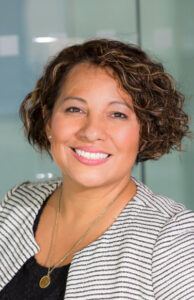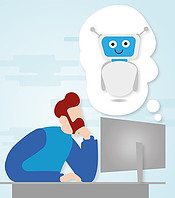
I imagine you were excited and energized when you started your new job. You couldn’t wait to learn, grow, and meet new people. It felt good.
You now find yourself where you have learned everything you can, you have grown personally and professionally, and the people at work are like your family. And then, for some, leaving their job or career is like saying goodbye to their family, leaving the nest, especially if you have been working at an organization for over a decade. But, on the other hand, if you are still at your job and feel like you want a change, to contribute more to humanity, and to explore, you may think, “I’m too old,” and you return to your routine with a sigh.
You are only as old as you let yourself believe you are, AND the answer is, “No, you are never too old to change jobs.” Three reasons people may want to change their careers:
1. They chose a career to pay the bills, and now that they have the house, the toys, and invested the money, they secretly yearn to do something different and more in line with their passions.
2. They’ve been riding in the back seat to let their spouses and dependants ride in the front.
3. They want to get into consulting or start their own business and are researching how to get started.
Whether you’re in midlife and want to change career, you need to work past retirement age because of finances, or you’re simply not ready to retire, finding more meaningful employment after a long career is a must if you want to live life with purpose and fulfillment. When you are unhappy at work, you may reminisce about better times when you could enjoy yourself, which can lead to feeling stuck and depressed. Although, when you are passionate about your work, it makes you look to the future and look forward to each day. Fulfilling work energizes you and, most importantly, helps you feel and look younger. Change and excitement are like a fountain of youth.
CASE STUDY #1
I coached Sarah, a 60-year-old woman and CEO. Sarah had been laid off due to restructuring and was struggling with depression, not because of the layoff but because everyone around her was telling her to retire. They told her she did not need to work or had plenty of money, and her husband was retired. So why would she want to work?
Sarah could not put her finger on why she felt so depressed. One clue that emerged in our discussions was that she had this idea of helping CEOs and executives and realized she was not ready to retire just yet. I suggested that Sararh stop listening to her family and friends and start listening to her heart. She began to look at the possibilities and opportunities encompassing this idea, and now she is working as a consultant, helping CEOs and start-ups four days a week and on her own terms.
She said jokingly, “You gave me permission not to listen to my family!” We had a good laugh.
Unless you want to retire and not work another day of your life, it is always possible to change your career, especially if you are motivated to do so and passionate about what you do or want to do.

The Future of Work
We are at the beginning of a new age of employment. First, we had the Industrial Age, when everything changed to mass production and the replacement of hand tools with power-driven machines. In the mid-twentieth century, the Information Age began. Now we are heading into an age of Artificial Intelligence (AI), which is progressing towards Intelligent Automation (IA). This combination of artificial intelligence and robotic process automation is what we can now call THE FUTURE OF WORK.
In the book INTELLIGENT AUTOMATION: Welcome to the World of HYPERAUTOMATION – Learn How to Harness Artificial Intelligence to Boost Business & Make our World More Human, authors Pascal Bornet, Ian Barkin, and Jochen Wirtz explain intelligent automation and how leading organizations can harness its full potential. My biggest takeaway, however, is its claim that IA can save 10+ million lives per year, triple our global budget for education, eliminate hunger, help protect our planet, and increase society’s resilience to pandemics and crises. The authors will donate profits from this book to charities that support education about new technologies for people in need.
When you think about it, Intelligent Automation will eliminate many jobs we don’t like to do and create more enjoyable, satisfying, and meaningful employment. Also, think of all the jobs and careers that no longer exist since you left school.
I know what you’re thinking. “What does this talk of AI and IA have to do with my career change?”
Hang in there; I’m getting there.
“In a chronically leaking boat, energy devoted to changing vessels is more productive than energy devoted to patching leaks.”—Warren Buffett
Midlife Career Change
First, we are living longer. What are we to do with our time in retirement? 
Mental health counsellors are familiar with the pattern. A person retires, and for a few years, everything is fine. But then, some retirees—especially men—fall into depression. Friends, family, and their counsellor may suggest they start a physical health program, socialize more, volunteer, learn something new, or maybe fill the gap by working part-time to diminish the impact of suddenly going from full-time work to full-time retirement.
What if you don’t know what you want to do with all your free time?
If you’re looking for a change and not sure what you want to do, I like these two easy personality tests that will give you a starting point.
https://poweryouahead.com/how-to-identify-your-transferable-skills/
https://poweryouahead.com/how-to-write-my-accomplishments/
If you’re looking for a change and not sure what you want to do, I like these two personality tests, they are easy and will give you a starting point.
CASE STUDY #2
Olivia was a massage therapist in her 50s and enjoyed her job. She was working both on-site and from her home. Olivia constantly had repeat customers when she decided to go full-time at home. Then the pandemic hit. She was also looking after her aging mother and did not want to catch anything. So, she closed up shop. As things returned to normal, she was looking at doing something different. We brainstormed on some of the things she was skilled in. She enjoyed proofreading and enrolled in some writing and publishing courses. Olivia also loves gardening, and on a whim, she applied at the gardening centre, and they hired her part-time. While she continues writing, this part-time job gives her energy and joy.
Going after what you love can also lead to a fulfilling job and activities.

What you love
How can you go for what you love if you don’t know yourself and what you want? How will you recognize the job, activity, or passion when it’s in front of you? I love helping people identify their skills and accomplishments, especially those that come naturally, because they often don’t think of them as accomplishments. After going through my approach, they are amazed at everything they have done. Finding joy and purpose in work is essentially getting paid for what you love to do.
“Your career is like a garden. It can hold an assortment of life’s energy that yields
a bounty for you. You do not need to grow just one thing in your garden.
You do not need to do just one thing in your career.”
—Jennifer Ritchie Payette
Transferable skills
You have accumulated invaluable skills throughout your career. Skills-based hiring is the wave of the future and the solution to more efficiently and effectively connect talent with opportunity. Are you wondering, “Can I transfer my skills to a dream job?” Hell yeah!
Career change ideas
Change can be uncomfortable and stressful. However, staying in your comfort zone can be boring after a while. Doing things outside your comfort zone is a great way to understand yourself on a different level. It’s energizing, exciting, and good for your brain. Have I mentioned it can also reverse aging?
Let me know
Are you thinking of a career change? Have you made a career change? Comment below on your experience.
You can also email me at joanne@powerplaycareer.com with your comments and ideas of other topics you would like me to address.
You can schedule a call to Book Your Coffee Chat.
To get more of this type of content, sign up for my newsletter at www.joannesavoiemalone.com and get my free guide: My TWO-STEP Process to help you Ace your next Interview.
For my blog for next Monday, I want to change things up and talk about travelling and my trip to Costa Rica. We all need time to rejuvenate, and I can’t wait to take some time to chill and tell you about it.
Until next week,
I remain your sounding board.
Joanne Savoie-Malone

